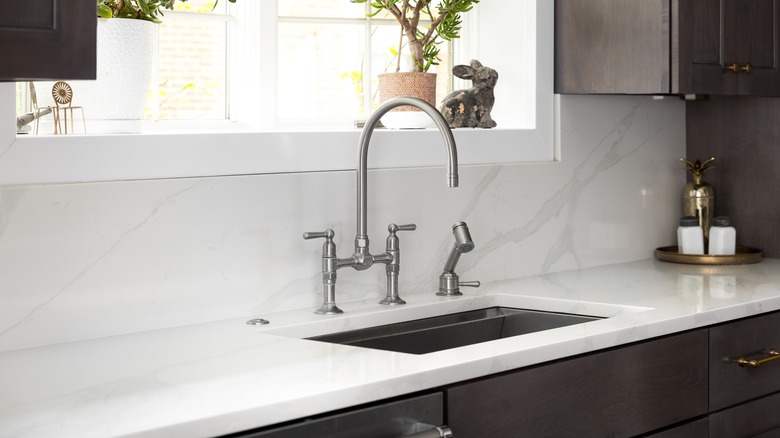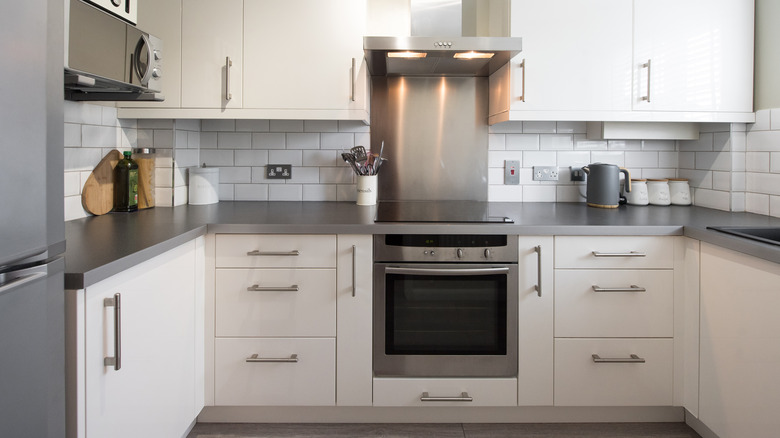What Are Solid Surface Countertops And Are They Better Than Quartz?
Whether you are planning to do a complete kitchen renovation or you're looking to install countertops in a new house, deciding on the material to use can be confusing, even frustrating. One minute, you're sure you'll go with quartz, but before the ink dries on your decision, you've joined the solid surface bandwagon. Of course, it is your kitchen, and you'll have to put in what you love. Still, there are things to consider before buying a solid surface countertop, including whether they are better than quartz.
To make a solid surface countertop, a white powder derived from bauxite ore ( known as "aluminum trihydrate") is mixed with certain resins and sprinkled with pigments for color effect. The mixture is then poured into a mold to define the shape, and voila — you have a solid surface countertop. So, a solid surface countertop is essentially mineral dust plus resins and pigments — all shaped using a mold and cut into ready-to-use sheets. Regarding whether solid surface countertops are better than quartz, the truth is that one is almost as good as the other. Let's get deeper.
Solid surface countertops vs. quartz: pros and cons
Solid surface countertops are made of a softer material. Because of this, they tend to scratch a bit more easily. As a precaution, it's recommended to lift rough-bottomed utensils and not move them across the surface.
However, the soft material also comes with a few advantages. Solid surface countertops are easy to repair. You only need to sand it down to bring back its luster. To do this, all you'll mostly need is a dual-action sander and sandpaper. There is also less worry about breaking glass and other fragile utensils. Also, a solid surface countertop gets a slight edge if aiming for a seamless look. The key thing here is that although solid surface countertops have seams, these seams are not easy to notice. The upshot? You can have large, continuous countertop sections.
While porosity (hence leakages) can be a concerning issue with countertops, both solid surface countertops and quartz are non-porous and often don't require sealing. So, that's a draw.
On heat tolerance, quartz gets the flowers. Too much heat can damage a solid surface countertop, although it has to be really hot: more than 250 degrees Fahrenheit.
One last thing: Solid surface countertops are cheaper, even if several factors will come into play, including product brand, specific style and design, and product quality. So, while quartz performs well as a countertop material, a solid surface is almost as good.

